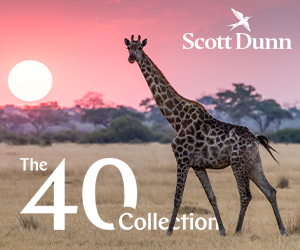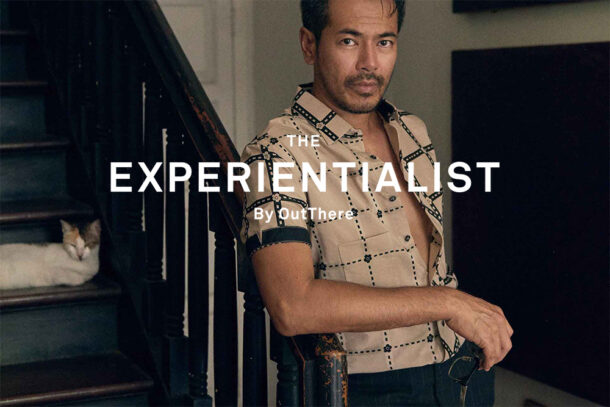At a time when hard-won rights of marginalised communities are being challenged and exclusionary sentiment is resurfacing everywhere from parliaments to picnic tables, we reaffirmed our commitment to greater representation, personalisation and purpose in luxury and experiential travel at Icons of Inclusion 2025 – and left feeling inspired by the thought-leaders and changemakers who stood with us, united in a shared determination to turn conversation into meaningful action across the hospitality industry.
Talking the talk is one thing, but walking the walk is another: at Icons of Inclusion 2025, the second-ever edition of OutThere’s annual forum on fostering greater inclusion in luxury travel, a diverse range of speakers and panellists took to the stage to share stories of belonging, strength and empowerment.
The event, which was hosted in collaboration with headline sponsors Visit Malta and The Dorchester, with further supporting partners including Enjoy Illinois and Visit Charleston, amplified voices too often unheard, misrepresented, or even exploited in the name of political polarisation — trans and non-binary, women, Muslim, people of colour, disabled individuals (and the proudly “badass”, as one panelist so brilliantly put it).
Following a welcome by OutThere’s co-founders Uwern Jong and Martin Perry, His Excellency, Professor Stephen Montefort, High Commissioner of the Republic of Malta to the United Kingdom, delivered a speech reaffirming Malta’s commitment to inclusive tourism. The Dorchester’s General Manager, Luca Virgilio, followed, welcoming delegates with hospitable warmth, and expressed his pride in hosting a gathering that champions diversity, equity and belonging in the travel industry.
The Dorchester Collection’s Area Director of People and Culture, Paul McDonald then took to the stage to share not only his personal story of carving out a career in luxury hospitality as a gay man, but also to showcase how through his work at the esteemed hospitality brand, he’s helped to create an environment that encourages teams to unite over how diverse they are. This empowers them to shape confident futures for themselves – something Paul believes not only strengthens them as individuals but also enhances the company’s identity as a brand.
Similarly, The Strengths Explorer Mark Julian Edwards argued that we can only be our best once we can be ourselves. Mark shared anecdotes of times he enjoyed professional success because he was able to authentically tap into his strengths, rather than having to work around them. He challenges employers to create environments where employees feel empowered to discover and embrace their personal attributes and strengths, instead of conforming to a predetermined mould. Crucially, Mark brought forward the argument that it’s not until employees are able to express themselves freely, without fear of retribution or discrimination, that their unique contributions begin to shine.
This certainly also applies to women in hospitality, to whom several consecutive talks and discussions were dedicated. Hosted by hertelier founder Emily Goldfischer, a panel on the new rules of leadership opened the series and included Charlotte Weatherall, newly appointed General Manager of Corinthia London, as well as Jessica Tapfar, Hotel Manager of London’s soon-to-open The Chancery Rosewood, and Eljesa Saciri, General Manager of The Mandrake in Fitzrovia. The conversation underlined the importance of confidence, with Eljesa, who arrived in the UK as a child refugee from Kosovo in the late 1990s, stating that her success at a comparatively young age is due to her not having had the luxury of being afraid. Charlotte, too, shared a recent anecdote about hiring a fellow female and lesbian leader, and how this might be perceived, despite being aware of the irony that no one would bat an eyelid at a heterosexual man hiring another. Moments like these revealed that even accomplished female leaders can still grapple with internalised narratives about what is expected of them. Jessica and Charlotte also highlighted how parental policies in the hospitality industry often lack flexibility, making it especially challenging for lesbian couples – who may find that neither parent benefits from more traditional provisions in our industry – to balance work with caring for their children.
Following this, Fathom founder Pavia Rosati interviewed Sophie Galvagnon, co-founder and CEO of upcoming, sustainable polar expedition brand Selar, on how to drive meaningful change within the cruise sector, a segment often regarded as one of the most environmentally challenging areas of the travel industry. Sophie shared that when she became the first female Arctic captain at just 26 years old, she realised that to progress in her career and advance her industry, a drastic change from the ground up was required. As a woman – and a lesbian one at that – this did not always come without obstacles, but the captain-turned-entrepreneur explained that her queerness was her “super power”, a special strength that has allowed her to learn, adapt, question and not take no for an answer. It’s this mindset that, in many regards, has helped her strip back cruising to its basics and rebuild the concept for a new generation of experiential travellers in search of positive-impact journeys.
The Risk Seeker® Holly Budge fearlessly presented next, guiding guests through a remarkable story of adventure that has led her to become the first woman to skydive Mount Everest, among other, and similarly spectacular, achievements. Following years of chasing the world’s greatest thrills, Holly developed a passion for the environment, conservation and community – and an understanding of the power of media – which she ultimately channelled into founding NGO How Many Elephants, as well as the annual World Female Ranger Week campaign. The latter celebrates the significant contribution of still rare, female rangers around the globe, from the African plains to the Indian subcontinent, in an effort to help women experience a greater sense of agency over their professional pathways, while earning them the respect they deserve for their work across conservation and biodiversity efforts.
Lisa Tse, founder of The Sorority, a membership-based society for women, also spoke powerfully about the imperative of showing genuine respect for women and allowing people to show up as who they are, while in conversation with OutThere Experientialist®-in-Chief Uwern Jong. Lisa spoke about how she has long navigated others’ expectations – as a British-born Asian woman – from assumptions about the career path she should follow to being mistaken for a translator while travelling to China on business as part of a delegation of otherwise white, male entrepreneurs. With The Sorority, one of several businesses Lisa has spearheaded, she’s created a female-led club allowing women of all ages, and from different geographic regions and backgrounds to network and support one another privately and professionally. Her insights into the importance of women uplifting one another struck a powerful chord, especially when she challenged the crowd to rethink how we speak about our successes and how, as women and as individuals from minorities, we are still shy about our achievements. Her parting words were a powerful call to action: to break free from the predetermined scripts we’ve been handed and instead write our own narratives with authenticity and intention.
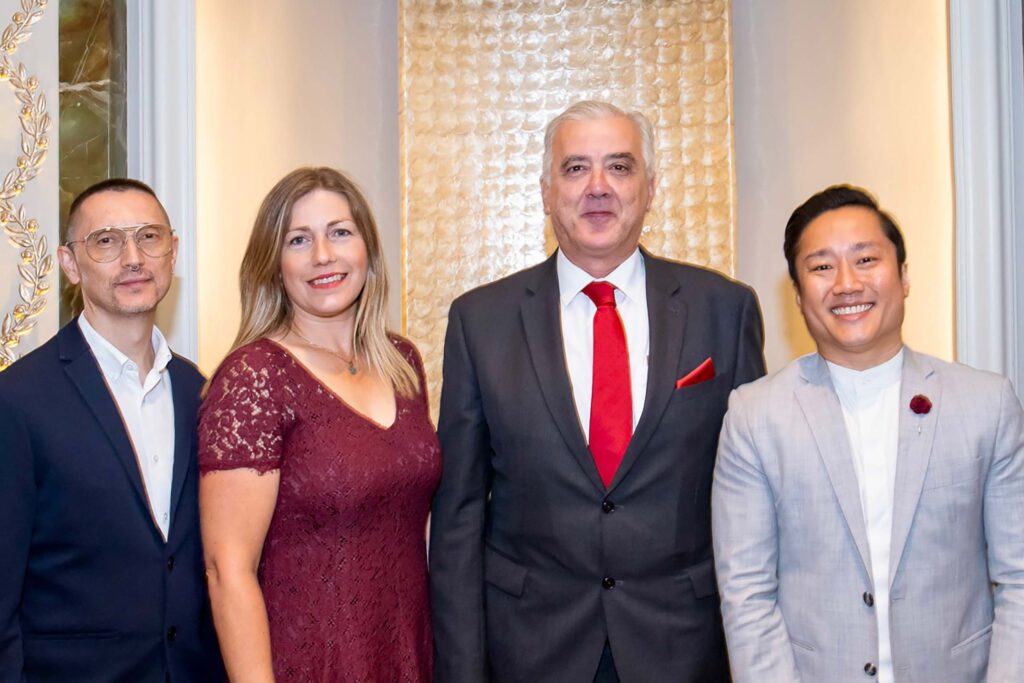
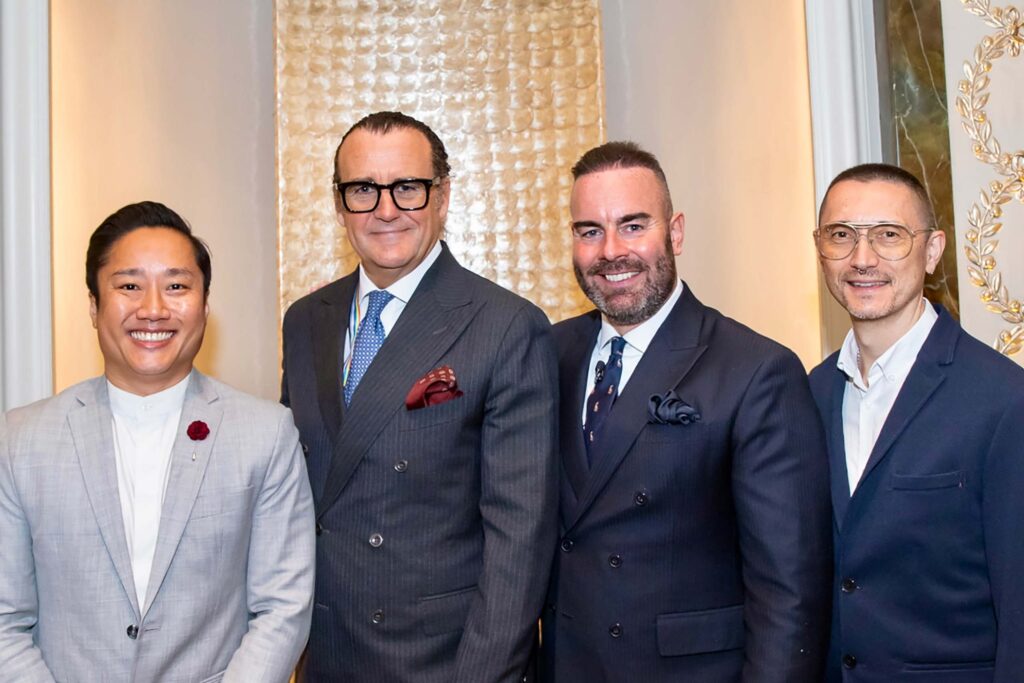
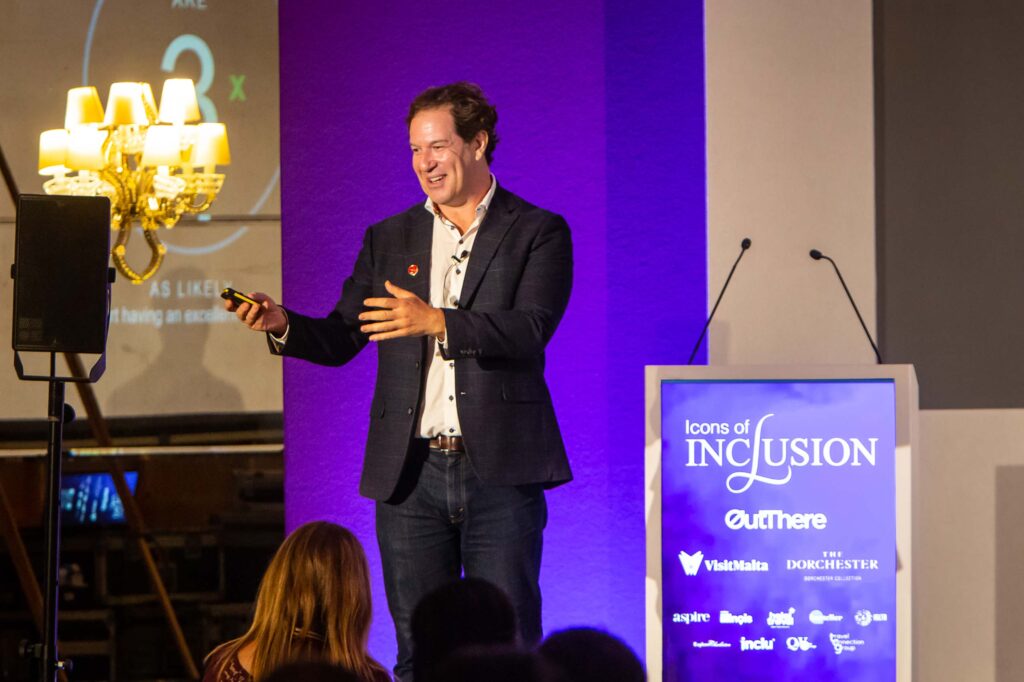
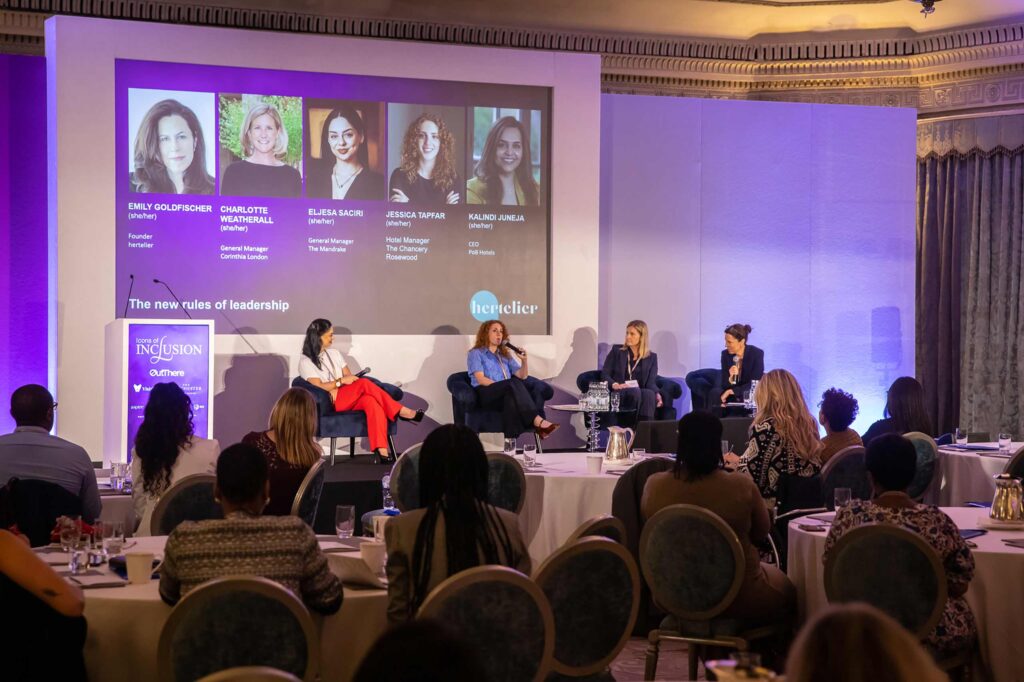
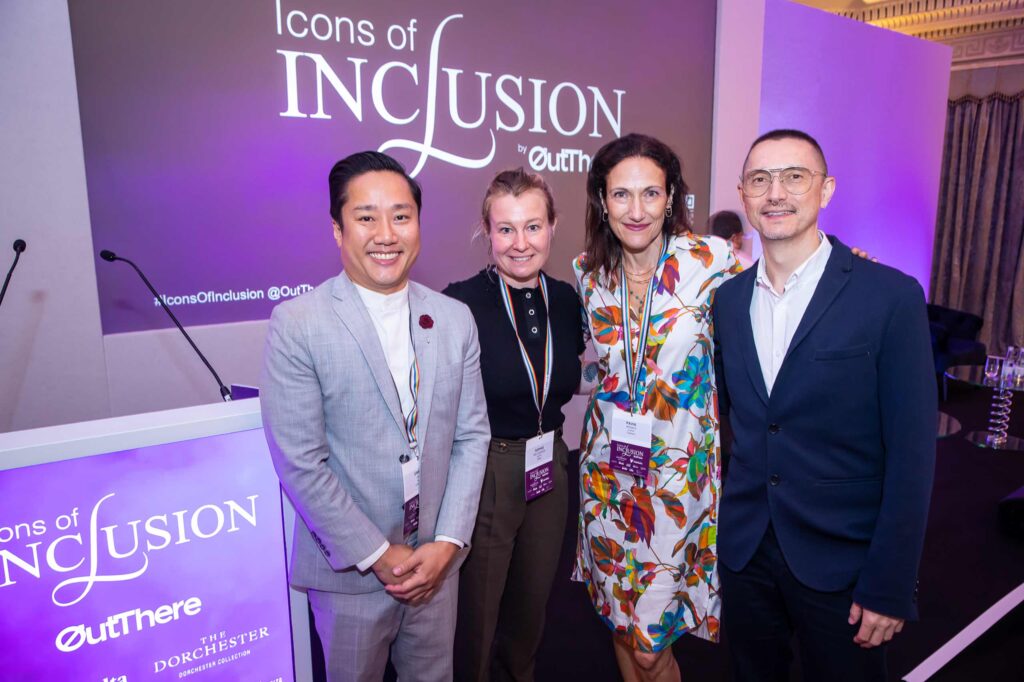
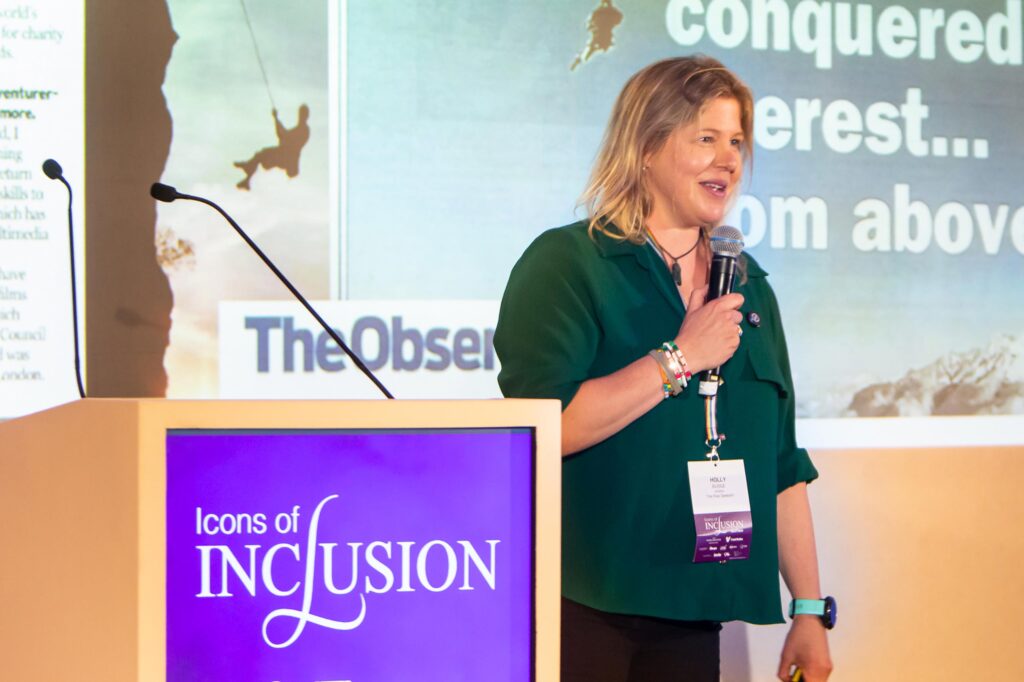
Click here to view more images from Icons of Inclusion 2025
The special role women play not only in hospitality but also in the lives of gay men was a touchpoint of a subsequent conversation between communications consultant Mathu Premaruban and South Carolina artist Jonathan Green, who flew in specially from Charleston to be with us, with the kind support of the city’s tourism board. Widely considered one of the most important contemporary painters of the American South, seventy-year-old Jonathan recounted his childhood in a farming community, stating that even back then he’d never conceived himself – a black, gay man – as anything but “natural”, offering a unique take on the constructs of privilege and perception. He alluded to the particular bond between a mother and her child, before elaborating on his thoughts on the relationship between gay men and straight women – “we are your best friends, we make you beautiful, we have your back”. More poignantly, the painter emphasised the vital importance of finding one’s community, whether through religion, family, friends, or other connections. Reflecting on his hometown of Charleston, a “beautiful city” built on the labour of his enslaved ancestors, he offered a rare perspective: choosing to honour their legacy by acknowledging the enduring work they contributed, rather than focusing solely on the suffering they endured.
Inclusive storytelling formed the backdrop of the next panel discussion led by The Travel Connection Group’s Howard Salinger, who spoke with accessible travel blogger Carrie-Ann Lightley, author and Head of Marketing at Not In The Guidebooks Jamie-Lee Abtar, accessibility consultant and Blind Girl Adventures founder Sassy Wyatt, and journalist Rashmi Narayan. Rashmi spoke passionately about the importance of finding new and underrepresented perspectives on destinations, something that is frequently overlooked editorially. If this can be implemented more in newsrooms and media organisations, she argued that we can create a more balanced and considered view of travel and recommend safe spaces for people to travel to. Similarly, Sassy and Carrie-Ann argued that inclusion must be followed by real equity for people living with disabilities, and that it is a moral imperative to open up spaces to everyone. This includes not just physical spaces, but digital ones too, as Sassy relayed the shocking statistic that over 90% of the worldwide web is still inaccessible to blind people. Jamie-Lee then talked about allowing marginalised communities to shape the narrative. She advised that beyond imagery, representation is all about voice and perspective, as well as about encouraging real depth in storytelling to avoid mere tokenism.
The panel discussion was followed by a powerfully inspiring and honest keynote speech by British TV presenter Sophie Morgan, who challenged the audience’s biases about what a disabled traveller ‘looks’ like. Too often, we think of disabled people as being in a wheelchair, which fails to recognise those with non-visible disabilities and those, including elderly people with mobility restrictions or those with temporary injuries, who may not identify as disabled, despite having specific accessibility needs. Sophie furthermore voiced her frustrations about the term ‘accessible’, which means different things to different people, and is commonly tied to connotations and legal requirements that vary from country to country. Most importantly perhaps, the general public often envisions disabled individuals as unable to travel, but the real challenge lies not with the travellers themselves, but with the barriers and obstacles the industry places in their way. With a more accessible world, people with diverse needs can be just as adventurous as anyone else.
Inclu Group co-founder and CEO Richard Thompson also provided insights on the realities of disabled travellers while in conversation with the company’s COO and founder of non-alcoholic cocktail innovators Inclusip, Namai Bishop. The pair were joined by Amy Campo McEvoy, the newly appointed Head of Programme of Fair Shot, a Covent Garden not-for-profit café and registered charity giving young adults with learning disabilities the opportunity to join its internship and employment programmes. Amy explained that graduates have gone on to work for companies including The Wolseley and Daylesford Organic, and have so far earned just under £300,000 in wages in their respective roles. Far from being just a statistic, this income has given Fair Shot graduates agency and a degree of independence, as well as a purpose and inclusion in a competitive workforce environment that routinely fails to acknowledge the skills and dedication of people with learning disabilities. An example of this was recent graduate Kayon, who shared the impressive contributions he’s made in his employment with British real estate company Savills.
The segment was followed by a series of 15-minute snapshot talks, beginning with Duncan Greenfield-Turk, CEO of Global Travel Moments, who, as a gay man whose life has been shaped by his own travels, spoke of the importance of creating “unapologetically inclusive” travel experiences made bespoke for LGBTQ+ travellers and their allies. Through his honest and heartfelt words, he underscored the universal right to explore the world freely and equally.
Sadia Ramzan, founder of The Muslim Women Travel Group, a global community of female Muslim travellers journeying to destinations from Iceland to Peru and Mexico to Mongolia delivered a compelling presentation that boldly challenged societal stereotypes about what female Muslim travellers seek in their journeys, combining sharp wit with powerful insight. It showcased how embracing diverse voices not only broadens market reach but also creates meaningful, respectful travel experiences that truly resonate with underrepresented communities.
In another emotional speech, Vice President of Marketing and Communications of Saint Lucia’s Windjammer Landing Resort & Residences Benjamin Di’Costa, emphasised with heartfelt conviction that proactively ensuring queer travellers feel safe and welcome – especially in destinations that may pose challenges – is essential. He wove in a story of personal loss, as a result of the homophobic Pulse nightclub massacre in Orlando, Florida, which spurs him to change the status quo in Saint Lucia and the rest of the Caribbean.
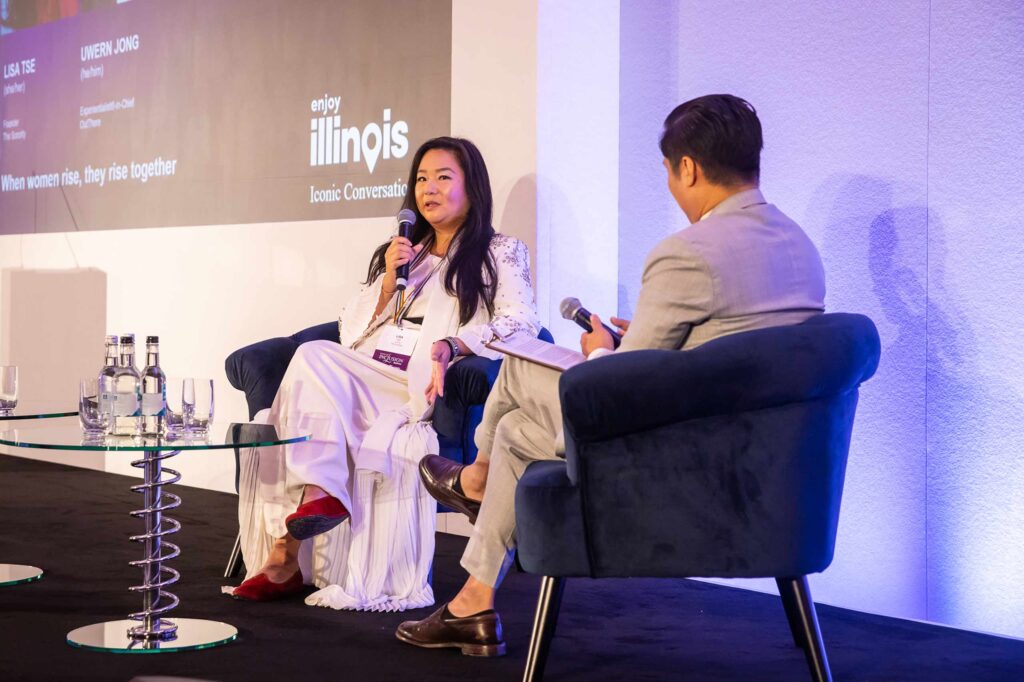
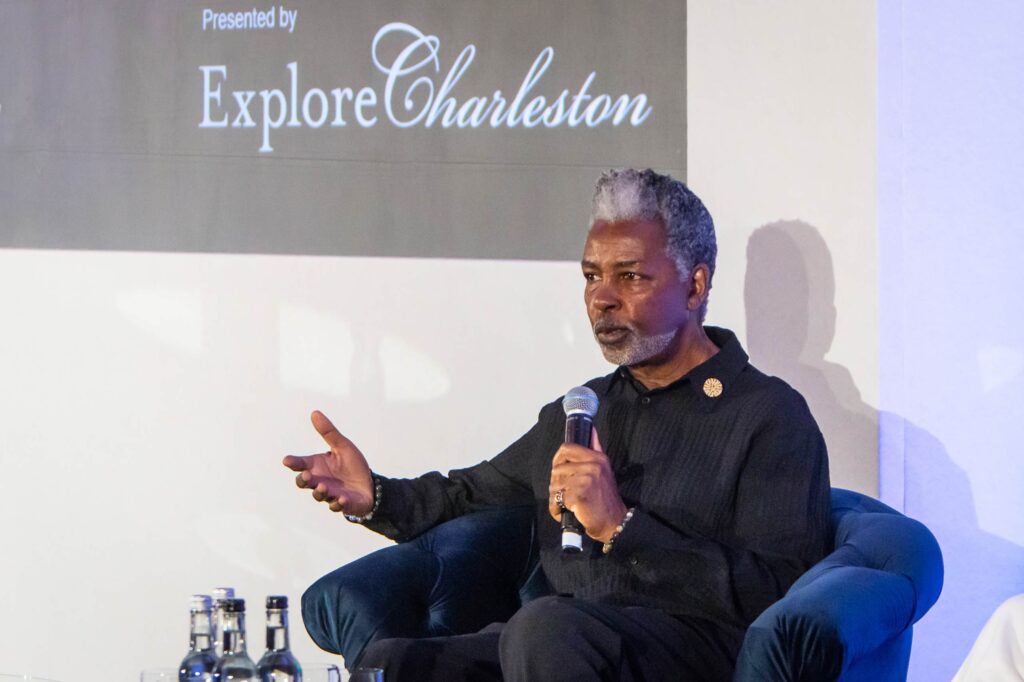
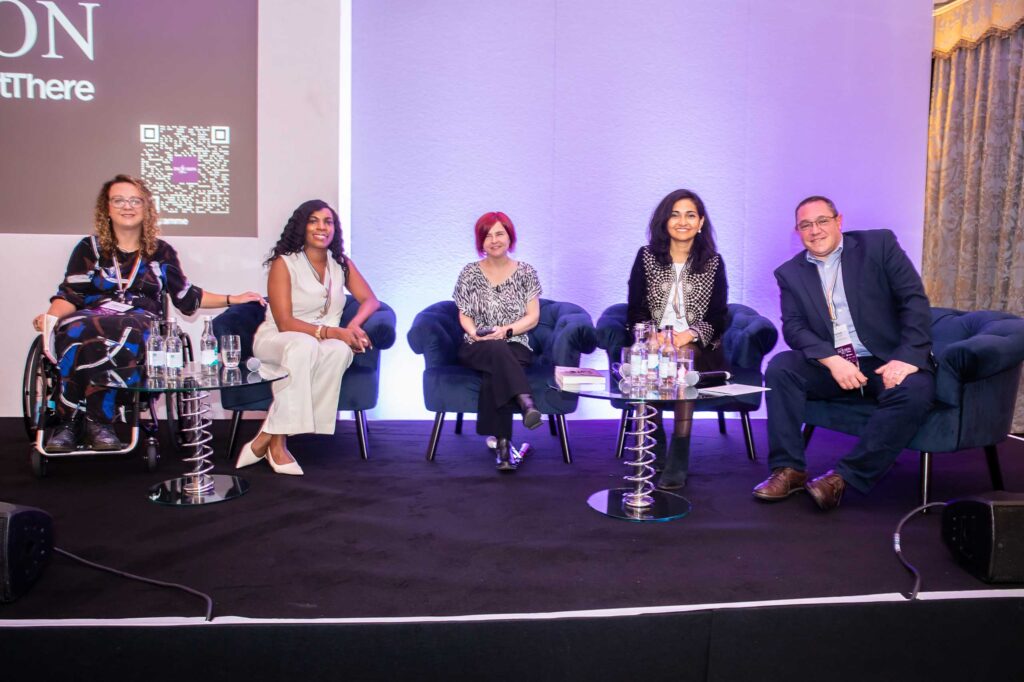
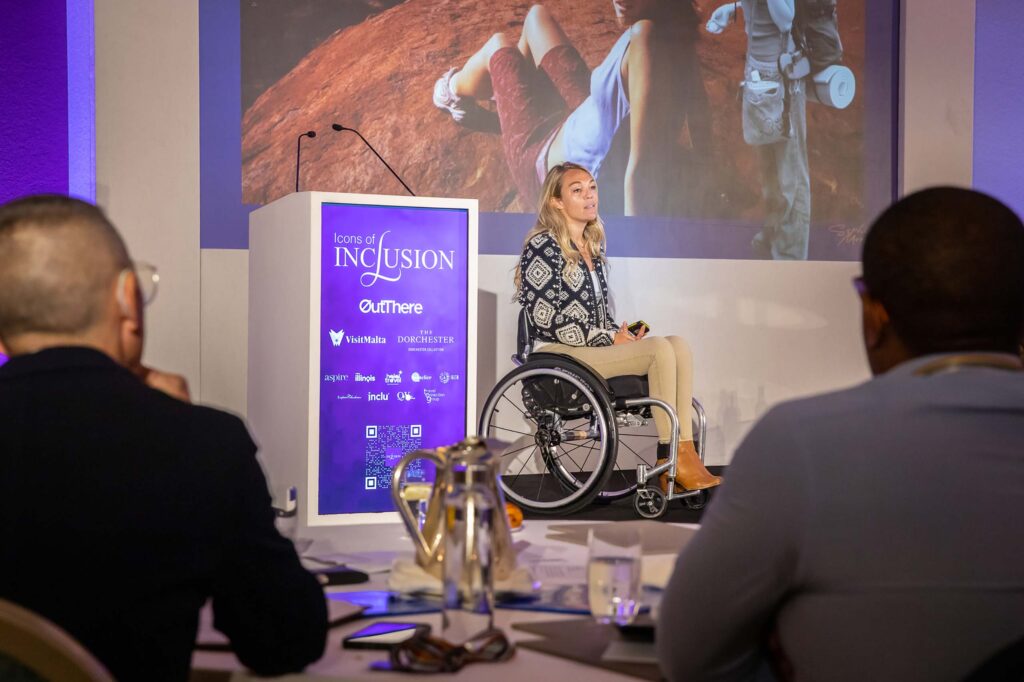
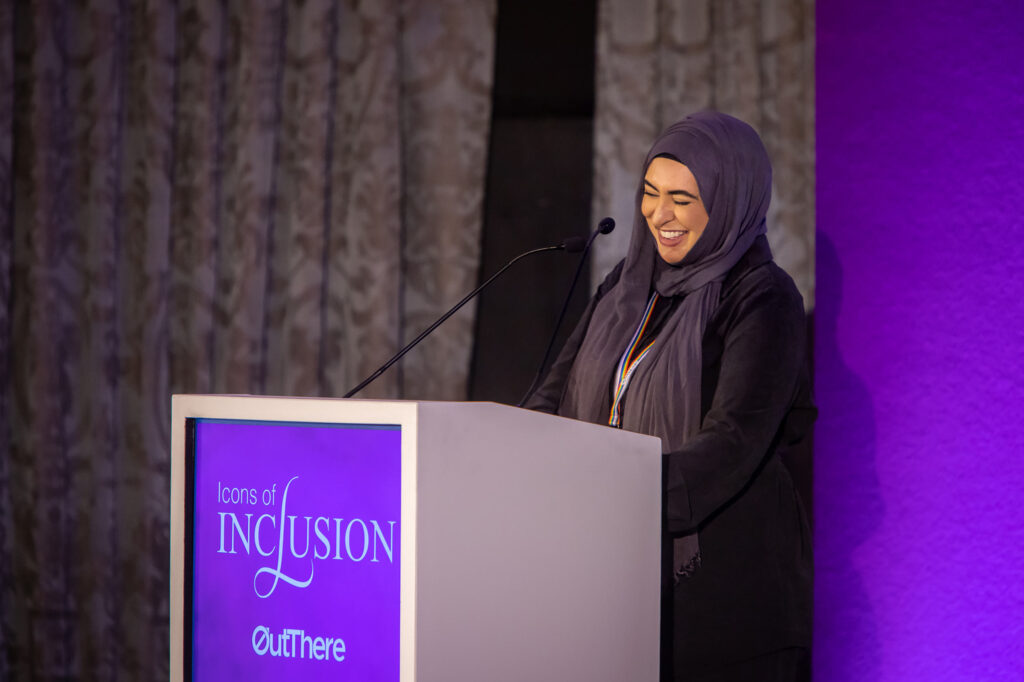
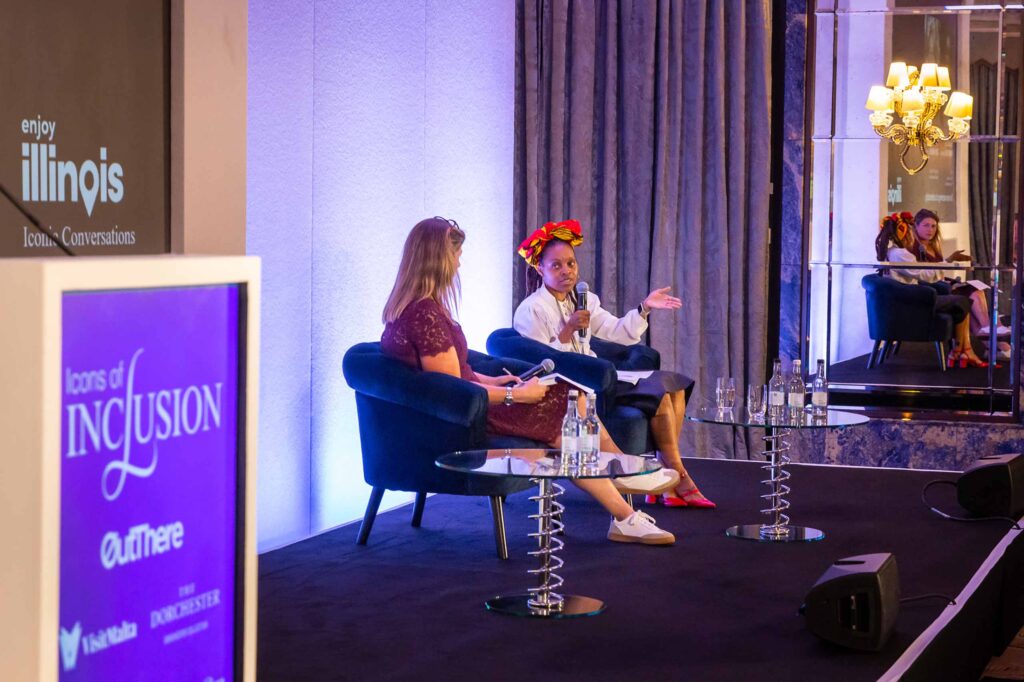
Click here to view more images from Icons of Inclusion 2025
The Snapshots session was brought to a rapturous close by Jayni Gudka, founder of Sama Sama International, a tourism community interest company aimed at providing grassroots-driven opportunities to people who continue to experience marginalisation, from transgender women in Brazil (where, shockingly, a trans woman is murdered every two days) to survivors of homelessness, human trafficking, and violence, amongst other things. Jayni’s presentation, entitled ‘When We Listen, They Lead’, emphasised that when we move aside our own expectations and allow people to lead from their lived experience, we can unlock innovation, authenticity and lasting change, and that equity doesn’t always come from speaking louder, but from listening better.
Trans and non-binary narratives were also the subject of a subsequent panel discussion hosted by writer Marley Conte, who spoke with travel photographer and LGBTQI+ inclusion consultant and trans man Max Siegel, podcaster and Community & Events Director at We Create Space Neil Hudson-Basing, and Universal Music’s Label Operations Manager Trenton Tomlinson. The panel explored what it takes to be an ally to the community, and that creating an environment that is psychologically safe for gender-queer people is the very basis of accommodating the needs of those who don’t identify as cisgender or within the gender binary. Life for transgender people today can be incredibly scary and unnerving, marked by uncertainty, fear and the constant need for vigilance. In many places, trans individuals are facing an alarming rollback of rights and protections, with new laws and policies aimed at restricting access to healthcare, public spaces, education and even the right to exist openly and safely. The panel pointed out that just because a comparatively small community of people gets more rights, it doesn’t mean the majority loses them – and that when so-called ‘minorities’ gain more rights, others, too, stand to benefit from a more democratic and progressive society.
The final words of the day were with Kgomotso Ramothea, CEO of the African Travel and Tourism Association (ATTA®), who shared her thoughts on travelling authentically with Tolene van der Merwe, UK and Ireland Director for Visit Malta, on stage. Reminiscing about an experience that saw tourists join locals in both singing and dance during a recent journey, Kgomotso highlighted just why it’s important for visitors to Africa to go beyond the ordinary and seek out authentic and unique adventures outside the classic safari experience: it’s only when travellers feel encouraged to visit local communities and engage with them at eye level, that they reap the benefits of true, cultural immersion in the continent’s multifaceted artistic expressions, traditions and lifestyles.
And the idea of authenticity, on the whole, ran like a golden thread through the day. Speakers and panellists often outlined not just the moral obligations of hospitality providers to bring about fairer and more accessible experiences for all, but also spoke of their hopes of a society that realises the boundless potential for a bolder way to travel and a more meaningful way to engage with other cultures and the world around us. They agreed that this can be unlocked through an approach that is not just incrementally ‘more inclusive’, but ‘inclusive, full-stop’. That’s not to say that travellers expect perfection: Icons of Inclusion 2025 showed that what diverse communities are looking for is a willingness to learn and an openness in having dialogues with those whose interests, needs and safety too often remain unconsidered.
This is particularly crucial in the current climate, in which political division has polarised hearts, minds and nations. But it has become evident, that despite the progress made, societal changes can easily be rephrased and instrumentalised by those who perceive them as threats to traditional values – ironically, without any acknowledgement that those very values were shaped by sentiments including misogyny, xenophobia, and homophobia – in a millennia-old effort to retain hierarchical paradigms and unjust power structures. It’s precisely why, just as parts of the world embrace more liberal views, those with an opposing, exclusionary mindset become more radical in their thoughts and extreme in their actions.
As we approach this tipping point, travel has a unique opportunity to give a voice to marginalised communities and to open hearts. Tourism remains one of the strongest forces for exchange, as it’s on our travels that we have the privilege to engage with other cultures first-hand, rather than through the lens of media reportage or Instagram algorithms. It’s also on our travels that we find ourselves in shared spaces and exchanges with members of communities we are not a part of: same-sex couples, disabled travellers, groups of female Muslim holidaymakers, and others.
The time for action is now. Too horrible are the statistics around the murder rates of trans people, too unjust the barriers that make spaces inaccessible to some, and too urgent the calls of those who, on the basis of their gender, are excluded and discriminated against in positions where they could make a real impact in our industry and the world at large.
Icons of Inclusion is a powerful gathering of the travel industry’s most forward-thinking minds and boundary-pushing leaders. It brings together visionaries who are reshaping the future of tourism and hospitality through a lens of representation, authenticity and impact, and is a platform for bold ideas, inclusive conversations and transformative storytelling. It’s designed to inspire luxury travel professionals to lead with purpose – and to build a more thoughtful, welcoming and equitable industry for all. Supporting partners this year include Aspire, Halal Travel Network, hertelier, IGLTA, Inclu Group, Queer Weddings and Travel Connection Group.
Photography by Joel Ryder



